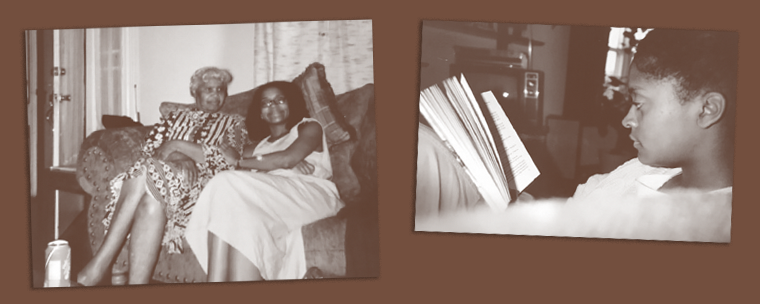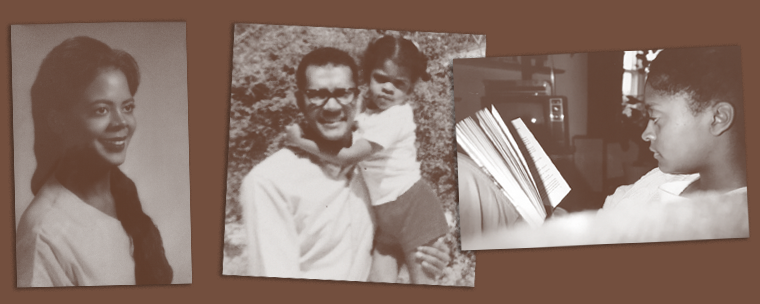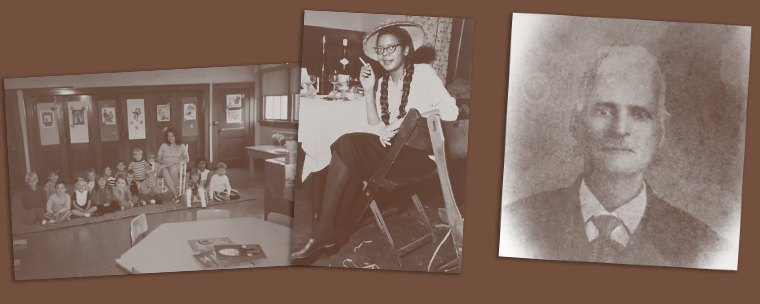Library Journal
(Starred Review)
“Bernard's honesty and vulnerability reveal a strong voice with no sugarcoating, sharing her struggle, ambivalence, hopes, and fears as an individual within a web of relationships black and white. Highly recommended.”
Bad Form
“Bernard is a talented writer – I was enthralled by her words, drawn into the tapestries woven by her language that manifest glimpses into her life experiences. Bernard begins by describing her ethos, you can follow her internal negotiations as she explores the book’s purpose before settling on a conclusion. She arrives at a principle of honesty, committed to employing “a new way of telling; I wanted to tell the truth about life as I have lived it”. Though this book was born out of violence – she was in hospital recovering from a stabbing – these stories are the “salve” that heals a wound that transcends skin, ripping into the fabric of identity.”
Christian Century
“Black Is the Body takes place somewhere between a wound and its healing, between the raw material of experience and a finished story, between a history and the identity forged within it. In each of this collection’s beautifully crafted essays, Emily Bernard claims the powerful choices made in the spaces between.”
Publishers Weekly
“Bernard’s wisdom and compassion radiate throughout this thoughtful collection.“
Ploughshares
“In her new book, Emily Bernard writes she is “most interested in blackness at its borders, where it meets whiteness, in fear and hope, in anguish and love.” She examines this intersection closely, with her own life as a case study, to see where the pieces fit together neatly like a puzzle, and where their edges collide. The result is the collection of deeply personal essays in Black is the Body: Stories from My Grandmother’s Time, My Mother’s Time, and Mine.”
Redbrick
”Black is the Body opens with two propositions, one by James Baldwin and the other from Simone de Beauvoir, saying in this order, that ‘black is a condition’ and ‘the body is not a thing, it is a situation.’ This seems to be at the heart of Emily Bernard’s perception of what race means in America: blackness is the body’s condition, and this condition is her lived experience. Black is the Body offers a personal and deeply moving journey through the life of Bernard within this collection of 12 essays, each focusing on a significant moment of her life. Bernard does not shy away from sharing intimate and challenging moments, and each harbours race at its core.”
Chapter 16
There are stylistic echoes of Joan Didion—terse yet beautiful writing, a bracing honesty—in the graceful new essay collection by Emily Bernard, a Nashville native and the editor of Remember Me to Harlem: The Letters of Langston Hughes and Carl Van Vechten, a New York Times Notable Book. Black Is the Body plumbs Bernard’s own psychic wounds, sifting nuggets of hope from the anguish of African-American history.
While Didion shifts between the poles of her imagination, Los Angeles and New York, Bernard sets her work on the fault lines between Burlington, Vermont, where she and her husband teach literature at the state university, and her childhood home, with forays into her family’s roots in rural Mississippi. West and East, North and South: our American mythology coiled within a compass. Didion’s essays are models of clinical observation, but Bernard leads us into her inner landscape with candor and confession. Beneath her still surfaces, a rage roils.
The Miami Times
Your mother dealt with things you can’t imagine.
It was a different time when she was your age, with societal issues you’d never tolerate and rules you wouldn’t abide. Same with your grandma: scrapbooks, history books and museums are the only places you’ll see what she lived. So what will your children know? As in “Black is the Body” by Emily Bernard, what’s your story?
Stylist
This generous-hearted new essay collection is essential reading
In 1994, Emily Bernard – then a graduate student at Yale University – was stabbed in a coffee shop in New Haven, Connecticut. The violence was random, perpetrated by a stranger who appeared to be mentally ill; several other people were injured in the same attack, although no one died. The stabbing, and how it has echoed throughout her life in the decades since, is the subject of the first essay in Bernard’s new book, Black Is The Body: Stories From My Grandmother’s Time, My Mother’s Time, And Mine (Doubleday).
Kirkus Reviews
(Starred Review)
“A memoir in essays about race that is as lucid as the issue is complicated.
Though Bernard (English and Critical Race and Ethnic Studies/Univ. of Vermont; Carl Van Vechten and the Harlem Renaissance: A Portrait in Black and White, 2012, etc.) is a scholar, her latest book is almost devoid of jargon. Instead, the writing is deeply felt, unflinchingly honest, and openly questioning. The author makes no claims to have all the answers about what it means to be a black woman from the South who has long lived and worked in the very white state of Vermont, where she might be the first black person that some of her students have encountered.”
Melan Mag
Celebrated author Emily Bernard, a professor of English at the University of Vermont, is winning accolades for her most recent book, Black is the Body: Stories from My Grandmother’s Time, My Mother’s Time, and Mine which recently won the Christopher Isherwood Prize for autobiographical prose in the Los Angeles Times 2020 Book Prizes competition.
Her wide-ranging, insightful essays explore many subjects, including race, class, adoption, womanhood and generational love.
InStyle
I have not stopped thinking about the subtitle of this essay collection since I was first made aware of this book in December 2018. I am a very family oriented person and the idea of hearing three generations of stories from black women is so exciting to me. I wish my own grandmother were here to tell more stories. Black is the Body was one of Oprah Magazine’s 25 most anticipated books of 2019, and now it's out and in its second printing. Clearly, we could all use some generational storytelling about now.
Entertainment Weekly
Included in its “9 brilliant, illuminating new books to read this Black History Month”
“Bernard’s lyrical book details traumas and pain from decades past to interrogate the nuances of her own life: growing up black in the South, marrying a white man from the North, and surviving a violent attack which unleashed the storyteller in her.”
Pittsburgh Post-Gazette
“Black Is the Body,” Emily Bernard’s essays on being a black woman in a state almost totally white, brings lucidity, honesty and insight to the topics of race and interracial relationships.”
Book Riot
The essays in this collection are about Bernard’s experiences of race: her life as a black woman in Vermont, her family’s history in Alabama and Nashville, her job as a professor who teaches African American literature, and her adoption of twin girls from Ethiopia. It begins with the story of a stabbing in New Haven and uses that as a springboard to write about what it means to live in a black body.
PopSugar
The essays in this collection are about Bernard’s experiences of race: her life as a black woman in Vermont, her family’s history in Alabama and Nashville, her job as a professor who teaches African American literature, and her adoption of twin girls from Ethiopia. It begins with the story of a stabbing in New Haven and uses that as a springboard to write about what it means to live in a black body.
BookPage
Author, professor and academic Emily Bernard answers questions about storytelling, her writing process and the real-life experiences behind the essays in her latest collection, Black Is the Body.
The Rational Creature - Bookworm Beat
In her uniquely constructed memoir, Emily Bernard explores how Americans continue to talk about race through twelve essays that cover numerous experiences, from growing up black in the South to marrying a Northern white man, to the process of adopting children. Its many movements will leave you thinking about the current conversations regarding race and gender in the United States, but perhaps more importantly, it will have you wondering why there are certain conversation we are not having.
Emily spoke with us about how this book came into being, as well as how she handled the delicate topics within the book and what she is planning to work on next.










